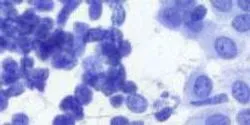Biological Sciences

Racism as a social and scientific concept is reshaped and reborn periodically through the ages and according to a Penn State University anthropologist, both medical and scientific researchers need to be careful that the growth of genomics does not bring about another resurgence of scientific racism.

The Clinical and Laboratory Standards Institute (CLSI) has released a new quality management systems standard on laboratory internal audit programs. A laboratory audit program is critical to ensuring laboratories meet applicable requirements for quality system essentials assessments.

The new Human Neuroscience Institute in Cornell University’s College of Human Ecology aims to advance research on the neural basis of human behavior.

Researchers from Warwick Medical School have discovered the key role of a protein in shutting down endocytosis during mitosis, answering a question that has evaded scientists for half a century.

Drinking water with a relatively high concentration of magnesium protects against hip fractures, according to results of a study from the Norwegian Institute of Public Health.

It is well known that genes are passed from one generation to the next. In addition, new genes arise regularly, although the number of genes in a particular organism does not seem to increase. The paradox has been solved by recent research at the University of Veterinary Medicine, Vienna, which shows that newly created genes are frequently lost. The spontaneous appearance and disappearance of genes enables organisms to adapt rapidly to their environment and helps drive evolution. The work is published today in the journal eLife.

A team of researchers at Chalmers University of Technology has found that kidney cancer cells have a quite different metabolism than other types of malignancies. The findings pave the way for new methods of diagnosing kidney cancer at an early stage, a feat that had eluded researchers earlier, and thereby fresh approaches to treatment.

Some people recall a dream every morning, whereas others rarely recall one. A team led by Perrine Ruby, an Inserm Research Fellow at the Lyon Neuroscience Research Center (Inserm/CNRS/Université Claude Bernard Lyon 1), has studied the brain activity of these two types of dreamers in order to understand the differences between them. In a study published in the journal Neuropsychopharmacology, the researchers show that the temporo-parietal junction, an information-processing hub in the brain, is more active in high dream recallers. Increased activity in this brain region might facilitate attention orienting toward external stimuli and promote intrasleep wakefulness, thereby facilitating the encoding of dreams in memory.













